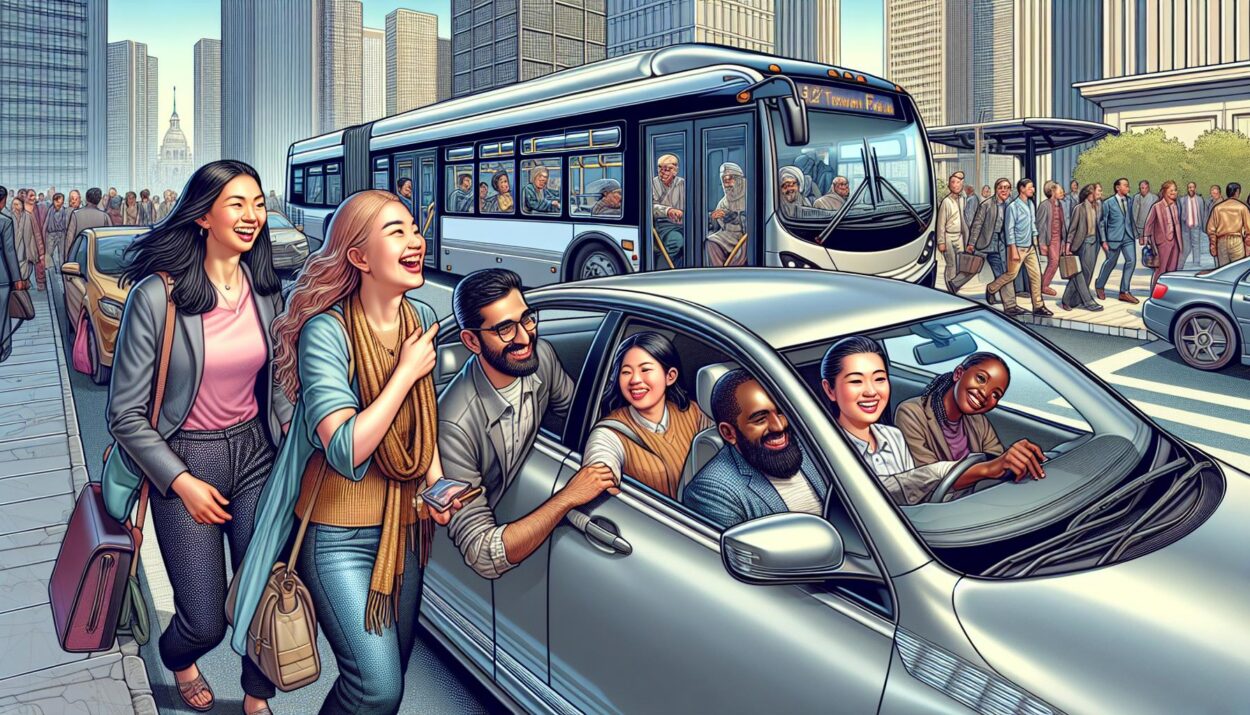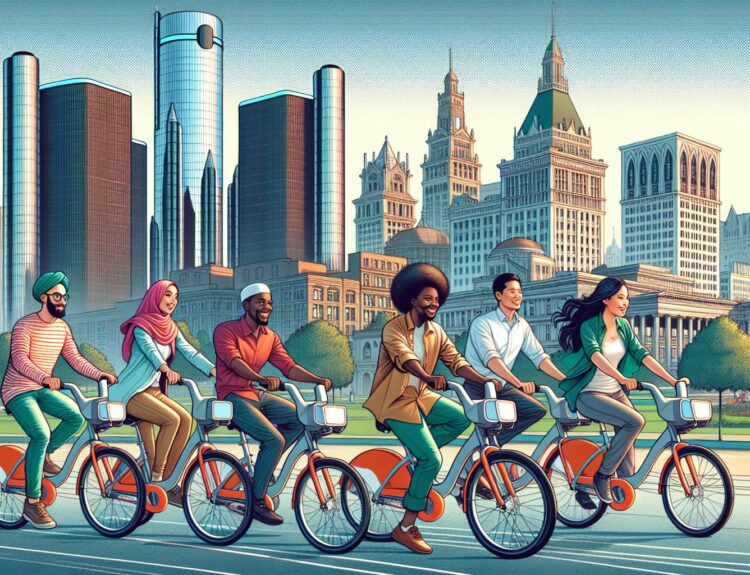Living in Detroit comes with its unique set of challenges, and one of the most pressing issues we face daily is the traffic situation. As a Detroit resident myself, I understand the frustrations of navigating the city’s busy streets and highways. In this article, I’ll delve into the latest traffic statistics and explore how commute times impact our daily lives.
From rush hour gridlocks to unexpected road closures, Detroit’s traffic can be a major headache for commuters. As someone who commutes within the city regularly, I know firsthand the impact that traffic congestion can have on our schedules and stress levels. Let’s take a closer look at the numbers behind Detroit’s traffic patterns and uncover some insights that may help us better navigate our daily commutes.
Overview of Detroit’s Traffic Situation
Navigating through Detroit’s traffic can be a daily struggle. The average commute time in the city is approximately 28.5 minutes, with many residents spending even more time on the road. The congestion on major highways such as Interstate 75 and Interstate 94 during rush hours can make getting from point A to point B a tedious task.
As a Detroit resident, I can attest to the challenges of dealing with traffic jams that seem endless, especially during the morning and evening peaks. The frustration of being stuck in traffic not only affects schedules but also contributes to heightened stress levels among commuters.
Data from recent studies show that Detroit ranks among the top U.S. cities with the longest commute times. The average annual delay per commuter is approximately 67 hours, resulting in wasted time and increased fuel consumption due to stop-and-go traffic.
In addition to personal inconveniences, the city’s traffic congestion also has wider implications on the environment and economy. The excessive idling and slow-moving traffic not only contribute to air pollution but also impact productivity levels as people spend more time commuting than focusing on work or leisure activities.
Efforts to tackle these traffic challenges are ongoing, with initiatives in place to improve public transportation, expand road infrastructures, and promote alternative commuting options. Despite these efforts, finding effective long-term solutions to alleviate Detroit’s traffic woes remains a priority for both residents and city planners.
Impact of Traffic on Daily Commutes
I can attest to the frustrations many Detroit residents face due to the traffic situation in the city. The average commute time of 28.5 minutes may seem reasonable, but when factoring in rush hour congestion on major highways like Interstate 75 and Interstate 94, that time can easily double.
Studies have shown that Detroit ranks among the top U.S. cities for longest commute times, with an average annual delay of 67 hours per commuter. This prolonged time spent commuting not only leads to increased stress levels but also takes away valuable moments that could be spent with family or engaging in other activities.
In addition to personal inconveniences, traffic congestion has broader impacts on various aspects of daily life. It affects the environment through increased carbon emissions, contributes to economic losses due to decreased productivity, and puts a strain on overall well-being.
Efforts are being made to improve public transportation and road infrastructures, but finding sustainable solutions to alleviate Detroit’s traffic issues remains a pressing challenge for both residents and city planners.
Latest Traffic Statistics in Detroit
As I delve into the latest traffic statistics in Detroit, it’s clear that the city continues to face significant challenges on the roads. The average commute time in Detroit stands at 28.5 minutes, but during peak hours, congestion on major highways such as Interstate 75 and Interstate 94 can easily double this time, causing frustration for many residents.
Detroit ranks among the top U.S. cities for the longest commute times, with an average annual delay of 67 hours per commuter. This not only leads to increased stress levels but also results in a loss of valuable time that could be spent on more meaningful activities.
Efforts are underway to enhance public transportation and road infrastructures in Detroit, with the aim of easing traffic congestion. However, finding sustainable solutions to alleviate these traffic issues remains a significant challenge for both residents and city planners alike.
| Average Commute Time in Detroit | 28.5 minutes |
|---|---|
| Average Annual Delay per Commuter | 67 hours |
Detroit’s traffic woes not only impact individuals on a personal level, but they also have broader implications for the environment, causing increased carbon emissions and economic losses due to decreased productivity. It’s evident that addressing these traffic challenges is crucial for the overall well-being and development of the city.
Strategies to Navigate Detroit’s Traffic
In Detroit, dealing with heavy traffic is a daily reality that many of us have come to accept. To make our commutes a bit smoother, I’ve picked up a few strategies over the years that have helped me navigate through the chaos efficiently. Here are some tips and tricks to help you tackle Detroit’s traffic:
- Optimal Timing: Plan your commute strategically to avoid rush hours. Leaving a bit earlier or later can make a significant difference in your travel time.
- Alternative Routes: Explore different roads and discover less congested routes to your destination. Often, avoiding major highways can save you from getting stuck in long queues.
- Public Transportation: Consider using public transportation like buses or the QLINE, which can help you skip the stress of driving in heavy traffic.
- Carpooling: Save time, money, and reduce congestion by carpooling with colleagues or friends to work or events.
- Work Flexibility: If possible, discuss remote work options with your employer to cut down on daily commutes and minimize your exposure to traffic.
- Stay Informed: Use traffic apps and real-time updates to stay ahead of accidents or road closures and plan your route accordingly.
- Patience and Mindfulness: Remember to stay calm, patient, and respectful towards other drivers on the road. Practicing mindfulness can help reduce stress during your commute.
Keep in mind that Detroit‘s traffic situation is constantly evolving, so feel free to adjust these strategies to best fit your daily commute experience.
Conclusion
Navigating Detroit’s traffic may seem daunting, but with the right strategies in place, it can become more manageable. By planning ahead, exploring different routes, utilizing public transportation, carpooling, considering remote work options, staying updated with traffic apps, and maintaining a calm mindset, residents can better cope with the city’s traffic challenges. Adapting to the changing traffic landscape in Detroit is essential for a smoother commute experience. Remember, it’s all about finding what works best for you and making small adjustments to improve your daily travel routine. So, embrace these tips, stay patient, and tackle Detroit’s traffic with confidence!






